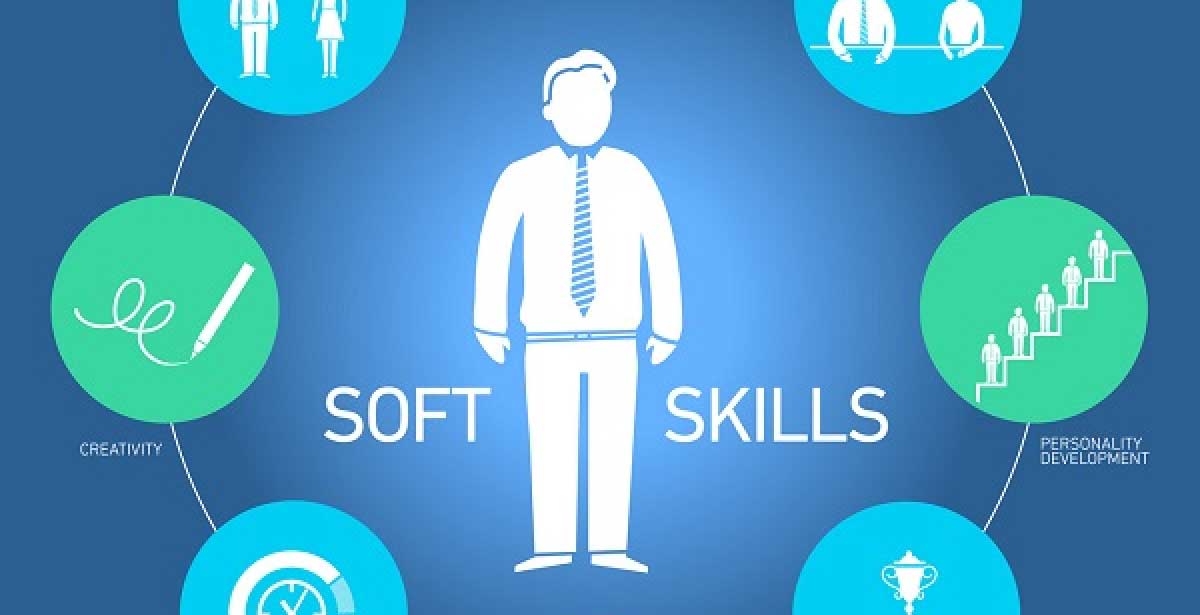
Demonstrate these Soft Skills in the Workplace
Have you ever heard of the term “soft skills?”
Soft skills are different from the technical skills that you’ll need to do a specific job like one as an HAVCR technician, CAD operator or a practical nurse. Soft skills are those personal attributes that tell an employer you won’t just know the ins-and-outs of your profession; you’ll also know what it takes to be a good employee! More than ever, employers are looking for these soft skills from their employees and job candidates.
Top Soft Skills in the Workplace
- Positive Attitude: According to a recent survey, 84 percent of human resource professionals said that they’re looking for a positive attitude in job candidates.* That means coming ready to work and willing to tackle whatever your supervisor needs you to.
- Dependability: In another survey, employment professionals placed dependability as the number one skill they look for in new hires.** If you’re dependable, your employer will rely on you to do your job and may also consider giving you additional responsibility. And that added trust can translate to promotions and pay raises!
- Communication Skills: More than 80 percent of hiring managers said they look for good communication skills in new employees.* They want you to be able to effectively communicate with customers and your fellow employees in-person, over the telephone and in writing.
- Loyalty: When you get a job, you want to keep it. Just like you hope your employer will keep you on, employers want you to be loyal and committed to a long-term working relationship with them. They consider you an investment and they’re willing to spend time and money training you as long as you’re committed to your job and the company.
- Team-Player: Almost three-quarters of HR professional say they’re looking for team-players when they hire.* They want you to be the type of person who thinks about the good of the company and is willing to work hard alongside your co-workers to get the job done, whatever it is.
- Strong Work Ethic: And it’s that willingness to work hard that employers want most! Your good work ethic is about always doing the best job you can. Employers want you to be motivated and willing to take on challenges by putting your best foot forward every time. They want you to do what your supervisor tells you to do, but they like it even better when you know what to do without being told. Taking the initiative and driving yourself towards individual and organizational success demonstrates to them that you really care about your job and your company.
If you think you do, know you don’t, or aren’t quite sure, it’s never too late to learn the soft skills employers want –and demonstrate them during your next job interview.
How to Showcase Soft Skills During a Job Interview
- Your positive attitude starts even before your interview starts. Think positive –starting right now! You CAN complete the career training you’ll need, find a job posting, get an interview and land a job in your new career. Believe in yourself and others will too. Does your cover letter and resume display a can-do attitude? Give examples in your resume of awards you’ve received or goals you’ve accomplished because of your good attitude. And in your cover letter, be sure to tell your future employer why their company is great and how you could be a valuable asset.
- One of the best ways to become more dependable is to set small goals and follow through. Perfect attendance in a career training program is a great way to demonstrate dependability and something you could proudly share with a hiring manager. Have you ever been asked to lead a team, committee or special event? You were probably only asked because you are dependable. Remember, don’t tell the hiring agent that you’re someone they can rely on; give examples of when others depended on you and how you came through!
- The only way to improve your communication skills is to practice. Get away from your computer, game console and mobile phone apps and try out your social skills on actual people. Whether you’re standing in line at the bank or the bus station, talk with the people around you. Reach out to classmates, instructors, family and friends and practice being the good communicating professional you hope to become someday soon.
- Are you a loyal friend? The way you stand by your family and friends is what employers hope you’ll bring to your new profession. They want to know that if they invest time and effort training you, that you’ll be a good and loyal employee. Show them that you will by pointing to examples from your past and offering up references that will vouch for your loyalty.
- Even if you’ve never actually been on a team, you can learn the skills you’ll need to be a good team player. Your family was your very first “team.” Can you put the needs of your family team before your own? Practice doing so right in your own family and take those developing skills with you on every team project you do. Teamwork is about setting a goal that’s best for the team, working hard to achieve it, and compromising when necessary.
- A good work ethic is developed over years, but you can improve yours every day. Do your best work, whether you’re performing the difficult tasks of your new profession or just cleaning up after a project. Bring 110 percent to everything you do! Your hard work will be recognized and appreciated and could lead to more responsibilities, better pay and even a promotion.
If you want to learn the skills of a new profession and the soft skills that employers are really looking for, check out all the programs at Porter and Chester Institute. We’ll teach you the technical skills you’ll need to pursue a career in such professions as healthcare, information technology and the trades, but also the soft skills that will make you stand out as a job candidate. Call us at 800-870-6789 to schedule a school tour at one of our campuses in Connecticut and Massachusetts.






